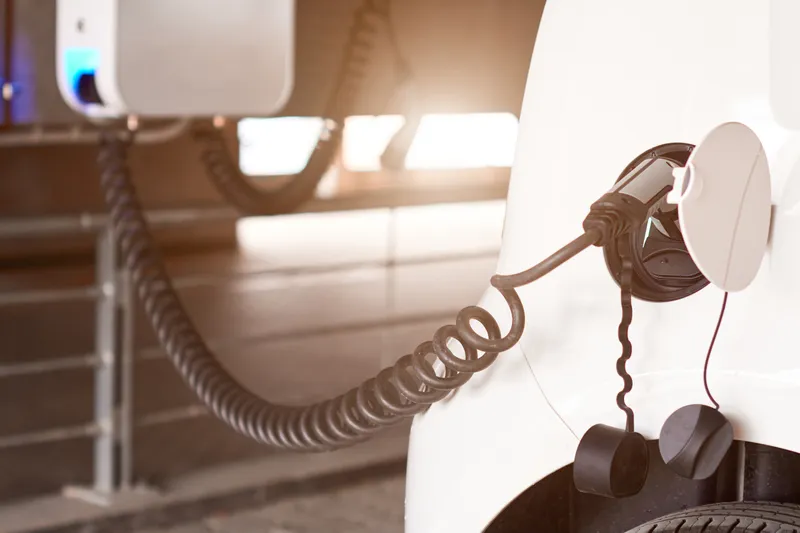A study by the International Council on Clean Transportation (ICCT) claims that trucks in the European Union are no more fuel-efficient than they were a decade ago.
The study, which analyses data from the European commercial trucking market, looking at key member states, manufacturers and fuel consumption trend, found that heavy-duty vehicles represent only four per cent of the on-road fleet in the European Union, but are responsible for 30 per cent of on-road CO2 emissions.
In contrast, the study cla
December 4, 2015
Read time: 3 mins
A study by the International Council on Clean Transportation (ICCT) claims that trucks in the European Union are no more fuel-efficient than they were a decade ago.
The study, which analyses data from the European commercial trucking market, looking at key member states, manufacturers and fuel consumption trend, found that heavy-duty vehicles represent only four per cent of the on-road fleet in the European Union, but are responsible for 30 per cent of on-road CO2 emissions.
In contrast, the study claims that the US truck fleet will become significantly more efficient and technologically advanced in coming years, altering a trend that has persisted for more than a decade, largely because new efficiency regulations in the US will drive vehicle technology improvements. In the absence of comparable EU regulatory standards, the new tractor-trailer fleet in Europe is likely to stagnate, with respect to efficiency technologies, and fall behind.
According to the report, heavy-duty vehicles are responsible for one-third of transport CO2 emissions in the EU, and their contribution is growing. Seven member states (Germany, Poland, Spain, France, United Kingdom, Italy and The Netherlands) are responsible for approximately three-quarters of the EU’s heavy-duty CO2 emissions.
Sales figures over the past ten years show that the trend in the EU is towards heavier vehicles and larger engines, more similar to those currently being sold in the US. Five truck manufacturers,994 Volkswagen, 609 Volvo, 2069 Daimler, PACCAR, and 4205 Iveco, dominate the EU market. Three of these manufacturers (609 Volvo, 2069 Daimler, and PACCAR) are also dominant in the US market.
According to ICCT, the EU is taking a similar approach to consumer information and labelling as it did for passenger cars over a decade ago. In the end mandatory standards were adopted for cars and ICCT believes a similar pathway for trucks would make sense as well, referring to the EU’s former strategy to reduce carbon dioxide (CO2) emissions from new passenger cars through CO2 labelling and a voluntary agreement with vehicle manufacturers. In the meantime, the US and other key automotive regions worldwide, such as Japan, China and Canada, are opting to set mandatory target values that will drive efficiency improvements in new heavy-duty vehicles through the adoption of improved technologies.
Commenting on the many similarities between the EU and US heavy-duty vehicle markets, the ICCT study suggests that many of the same technologies entering the US market, such as improved aerodynamics for trailers, automatic tire inflation and improved engine efficiency, could also be applied to the new truck fleet in the EU.
The study, which analyses data from the European commercial trucking market, looking at key member states, manufacturers and fuel consumption trend, found that heavy-duty vehicles represent only four per cent of the on-road fleet in the European Union, but are responsible for 30 per cent of on-road CO2 emissions.
In contrast, the study claims that the US truck fleet will become significantly more efficient and technologically advanced in coming years, altering a trend that has persisted for more than a decade, largely because new efficiency regulations in the US will drive vehicle technology improvements. In the absence of comparable EU regulatory standards, the new tractor-trailer fleet in Europe is likely to stagnate, with respect to efficiency technologies, and fall behind.
According to the report, heavy-duty vehicles are responsible for one-third of transport CO2 emissions in the EU, and their contribution is growing. Seven member states (Germany, Poland, Spain, France, United Kingdom, Italy and The Netherlands) are responsible for approximately three-quarters of the EU’s heavy-duty CO2 emissions.
Sales figures over the past ten years show that the trend in the EU is towards heavier vehicles and larger engines, more similar to those currently being sold in the US. Five truck manufacturers,
According to ICCT, the EU is taking a similar approach to consumer information and labelling as it did for passenger cars over a decade ago. In the end mandatory standards were adopted for cars and ICCT believes a similar pathway for trucks would make sense as well, referring to the EU’s former strategy to reduce carbon dioxide (CO2) emissions from new passenger cars through CO2 labelling and a voluntary agreement with vehicle manufacturers. In the meantime, the US and other key automotive regions worldwide, such as Japan, China and Canada, are opting to set mandatory target values that will drive efficiency improvements in new heavy-duty vehicles through the adoption of improved technologies.
Commenting on the many similarities between the EU and US heavy-duty vehicle markets, the ICCT study suggests that many of the same technologies entering the US market, such as improved aerodynamics for trailers, automatic tire inflation and improved engine efficiency, could also be applied to the new truck fleet in the EU.









